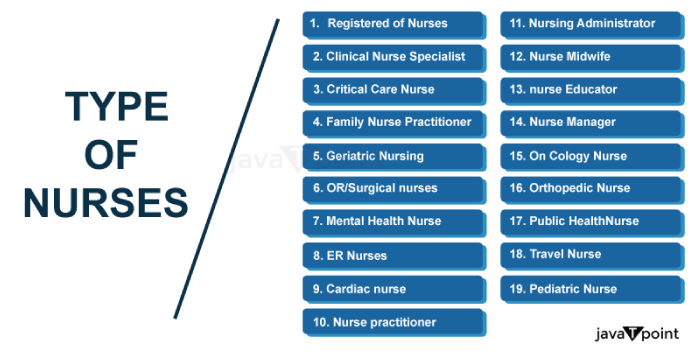Definition of Nursing Profession

Introduction
When we meet someone known or unknown, they usually ask two questions: "About your well-being" & "What you are working or what do you do." These are the common question we hear and answer to everyone. We take education, knowledge, learn special skills, and do training to work in a particular field.
In everyday life, along with names, a particular human is recognized by their daily professional work. Mostly every human being have to involve in some work for employment or to earn their livelihood. People must stick to some field to earn, some choose with their interest and some by compulsion or need. Working in a particular field with all our skills, knowledge, ethics, and education regularly states we are in a profession. The word "profession" refers to someone working based on their education, knowledge, skills, and training.
"Profession is an occupation and career chosen by people for their livelihood and survival or work practice of a person in a profession for a long time."
There are different types of professions, such as:
- Teaching profession
- Merchant navy profession
- Legal profession
- Management consultant
- Civil services
- Engineering profession
- Computer science professional
- Accounting profession
- Medical profession
- And many others
The medical profession is one of the renowned, notable, social, and national professions that list the top professions, including nurses, doctors, hospital workers, emergency medical technicians, and other trained caregivers. The medical profession is divided into sub-professions like Doctor, nursing, health, physician, emergency medical technicians, medical physicist, medical assistant, dietician, pharmacist, etc.
We will discuss the nursing profession, which is essential in the medical industry worldwide. The nursing profession is that glue that fills the space between doctors and patients everywhere. Nursing is not a work to do. It is a feeling of selfless care or an art & science. This unique profession in the healthcare sector is also considered a humanitarian service that focuses on the care of patients, families, individuals, and communities. Nursing has been going on for centuries and has a vast history.
"Nursing profession is one of the honorable professions consist of a systematic body of knowledge that provides a framework for making educated and skilled nurses in the health care industry."
Nurses play an essential role in meeting the healthcare needs of a growing number of patients, and it is the single largest profession that is the backbone of many countries.

Required education for the nursing profession
To be a professional nurse, here are some of the courses and degrees that need to be qualified, but courses can vary according to countries or states & these are:
- Diploma in Nursing
- Bachelor of Science in Nursing (BSN)
- Master of Science in Nursing (MSN)
- Master in nursing education
- Dual degree programs
- Doctor of Philosophy (Ph.D.) or Doctor of nursing practice (DNP)
- Couse of nursing after high school
- ANM (Auxiliary Nursing and Midwifery) course
- GNM (General Nursing and Midwifery) course
Types of Nurses in the nursing profession
With a boom in the nursing profession, it is hard to decide what kind of nurse is good according to the need. Today we have various types of nurses for every interest. So here are some of the fastest-growing nursing specialties:

- Registered nurses(RN)
Registered nurses need a Bachelor of Science degree and a state nursing license. They get employment at hospitals, residential care facilities, etc., and play these roles like as:
- Provide and coordinate patient care
- Give advice and emotional support to the patient and their family members
- Create awareness or educate patients and the public about various health conditions
- Educate people and does health promotion and counseling
- Before making the critical decision must consider health history and perform a physical exam too
- Clinical nurse specialist (CNS)
CNS nurses hold a Master's degree and sometimes a doctoral degree and get appointed in in-home health care services, hospitals, physician's officers, etc., as these are advanced practice registered nurses (APRNs). CNS nurses generally play a leadership role and educate and advise other staff nurses to improve the quality of care a patient receives. They directly assist doctors and provide direct patient care.
- Critical care nurse
Critical care nurses hold a bachelor of science or associate degree and a registered nursing license (RN) and get duty in hospitals and Doctor's offices. These nurses are similar to registered nurses but are specially trained for emergencies. Get certification in Advance Cardiac Life Support and specialize in assisting patients in major traumatic events (severe injury or life-threatening illness). They treat serious wounds and monitor life support systems in stressful scenarios.
- FNP (family nurse practitioner)
The family nurse practitioner holds a registered nursing license (RN) and Master's Degree in Nursing (MSN) and gets appointed in hospitals and Doctor's offices. These nurses are trained in primary health care services of all ages and perform duties such as physical exams, diagnosing and treating illness, prescribing medications, and diagnostic testing.
- Geriatric nursing
Geriatric nurses hold a registered nurse license (RN) and an associate or bachelor of science degree and get appointed in Doctor's clinics, nursing homes, and hospitals. These nurses specialize in caring for older patients and can anticipate future care for their patients. They care for illness, injuries, or ailments and maintain their quality of life.
- OR/Surgical nurses
These are also called perioperative nurses with a registered nurse license (RN) and an associate or bachelor of science degree. Nurses get an appointment in surgical centers, hospitals, and outpatient facilities. The nurses focus on pre- and post-operation care for the patient. They are good at setting up the surgical room for operations, applying bandages during surgeries to maintain and control the bleeding of the patients, and managing tools for operations. They can have CNOR and CNFA certifications and have a specialty in handling pregnant cases in terms of providing physical, emotional, and mental care for women at the time, before and after the birth of a child.
- Mental health nurse
Mental health nurses hold a registered nurse license (RN) and a master's degree and have a specialty in dealing with patients with psychological disorders patients. They can develop a meaningful relationship with patients during diagnosis and treatment and provide them with all levels of care that fulfill their emotional and mental needs. They get appointed in rehabilitation centers, hospitals, and psychiatric facilities.
- ER (emergency room) nurses
Emergency room (ER) nurses hold a registered nursing license (RN), associate degree or a bachelor of science degree, and CEN (certified emergency nurse) certification. ER, nurses work with a team in the emergency room and perform various tasks after evaluating the patient's medical chart and stabilizing it. They are trained to deal with basic wounds, injuries, or ailments in the emergency room under high-pressure scenarios.
- Cardiac nurse
These nurses need a bachelor of science degree or RN (registered nursing license). Nurses get the state nursing license and can be appointed at hospitals, rehab centers, and in-home care. The number of heart patients also increased with the increment in heart disease, which lifted the demand for cardiac nurses. Cardiac nurses are eligible to assist with surgical procedures such as angioplasty, bypass, or pacemaker surgery.
- Nurse practitioner
Nurse practitioners care for patients in-depth, like doctors, serving as primary and specialty care providers. They hold a master's degree in nursing or a DNP (Doctor of nursing practice degree) and get jobs quickly in Doctor's offices and hospitals. They assist patients and their families with advanced nursing services, including physical examination of patients, order testing, and prescribing medicine to them.
- Nursing administrator
Treatment administration is also essential, so the nurse administration job has risen to 20%. The nursing administrator holds a registered nurse license (RN) and bachelor of science degree and gets a job in hospitals and outpatient care centers. They are like nurse manager does a primary duty to oversee the entire unit of the nursing team. The nursing administrator manages the effortless and errorless functioning of the operation unit.
- Nurse midwife
Caring for pregnant women at the time of delivery is the most challenging task for nurses. For this, midwife nurses are trained to assist with labor & delivery and prenatal appointments. Nurse midwives hold a registered nurse license(RN) and a bachelor of science degree or associate degree and get easy appointments in doctors' offices and hospitals. These nurses majorly handle the pregnant cases and help the patient even after the delivery room by counseling and educating new mothers (on how to handle an adjusting change in life with a newborn).
- Nurse educator
In every field, we need a teacher. Therefore nursing profession also needs a responsible teacher who teaches nursing students how to take care of patients and teaches them comprehensive lessons about nursing in general, focusing on specific areas of nursing.
- Nurse manager
Nurses and their work need to be managed, so nurse managers are hired who do supervisory. The nurse manager holds a registered nurse license (RN) and a bachelor of science degree or associate degree and gets an appointment in surgical centers, hospitals, and outpatient facilities. Further, these nurse managers can move into administrative roles and handle various tasks like creating nurses' schedules, recruiting nurses, and making decisions regarding the management and budget of the hospital.
- Oncology nurse
Oncology nurses are highly involved in the treatment of cancer in which. They continuously monitor their patient's symptoms and progress and prescribe medications. They hold a bachelor of science degree or associate degree and registered nurse license (RN) and get a job in hospitals & cancer treatment centers. They help patients by educating them about their disease and treatment options or remission status.
- Orthopedic nurse
Orthopedic nurses deal with casting broken bones, including fractured bones, osteoporosis, arthritis, and joint replacement. They hold a registered nurse license (RN) and a bachelor of science degree in which they learn to deal with physical (bone) issues. They get certification after the ONC exam (orthopedic nurse certification exam) and get appointed in rehabilitation centers, hospitals, and Doctor's offices.
- Public health nurse
The main aim of these nurses is to teach and advocate for communities about important health information. With the motto of awareness and educating patients, these nurses tell about the importance of healthy eating, prevention of disease, and different treatment options and assist individuals with medical care. Public health nurses hold a registered nurse license (RN), associate degree, and bachelor's of science degree.
- Travel nurse
As the name suggests, these are unique nurses who can move from one location to another as per requirement (based on their contract, the patient requirement of location). They can quickly shift themselves from one location to another, with the help of which they can broaden their experience (personally and professionally). They can be paid hourly or accompanied by a housing stipend on house visits.
- Pediatric nurse
Today's environment shows pediatric nurses have 26% more job opportunities than other nurses. They hold a registered nurse license (RN) and an associate degree or a bachelor of science degree and get appointed in hospitals and Doctor's offices, especially for child care. Yet they are similar to other nurses performing a physical examination, developing treatment programs, and diagnosing illness. Child care or child nutrition is their specialization (infancy to teenage). Today's fast food trend gives a new boom to the pediatrician's role in keeping the body healthy.
Reasons for choosing nursing as a profession
- It gives you a job stability
- A good option for earning
- Respected professionals provide real field experience
- When you always want to learn (an excellent learning profession)
- Knowledge can be cultivated
- Have more career opportunities
Conclusion
Nursing is a world-renowned respectful medical profession with memorable roles and responsibilities. Nursing is the medical profession's core that can stand by doctors in every patient care journey, from checking in and triage to examination, medication, routine care, elderly care, and much more. A nurse has to work 10-12 hours a day in shifts (day and night shifts) with five working days. While working, nurses follow these processes: assessing, diagnosing, planning for outcomes, implementing treatment plans, and evaluating progress. Nursing helps you create life according to your vision without damaging your career and boost you to be progressive at every phase of life.
|



 For Videos Join Our Youtube Channel: Join Now
For Videos Join Our Youtube Channel: Join Now










